#elias khoury
Text
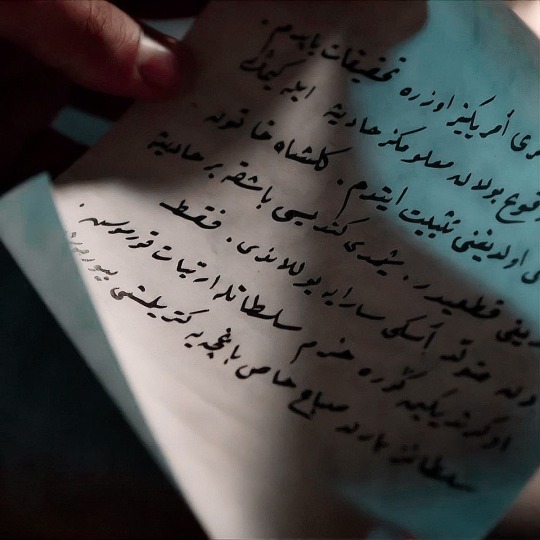
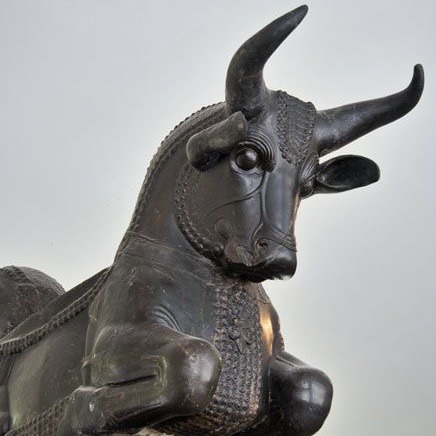
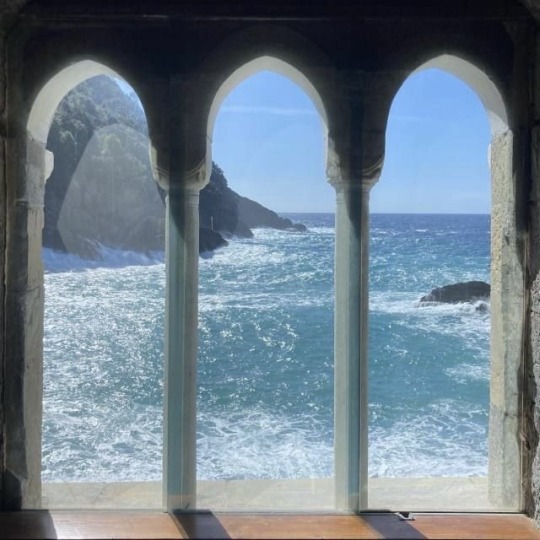
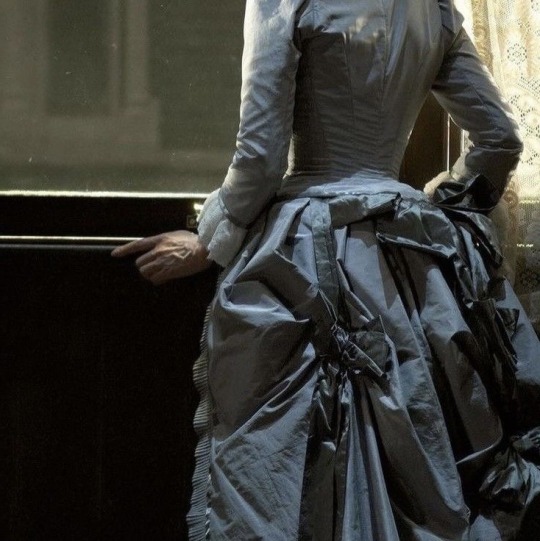

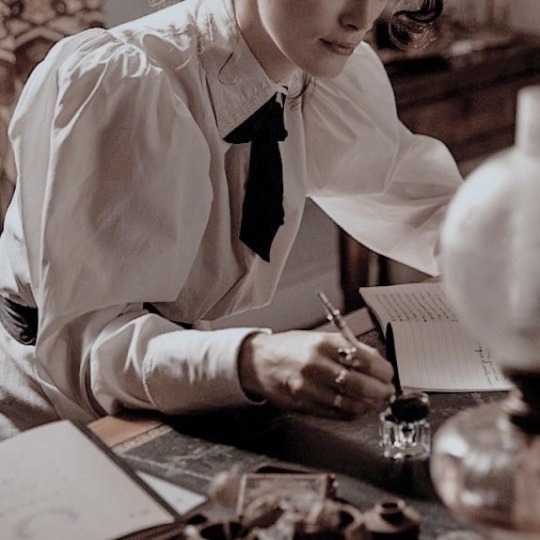

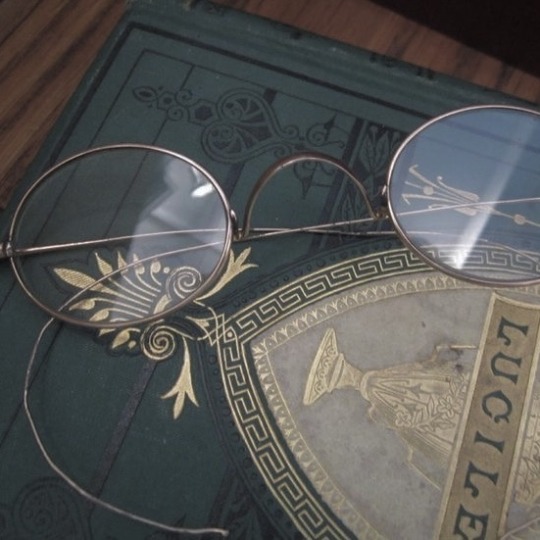

THE GENTLEMAN’S GAMBIT by EVIE DUNMORE
“We broke your spectacles, too … I shall fix them for you.”
The Arabic language offered many romantic possibilities, at least eleven different words for love to precisely capture the various stages of the emotion, and perhaps, secretly, she had expected more elaborate verbal wooing from him. Yet here he was, making her swoon with a plain I shall fix them for you.
#the gentleman’s gambit#evie dunmore#a league of extraordinary women#catriona campbell#elias khoury#catriona x elias#bringing down the duke#a rogue of one’s own#portrait of a Scotsman#lit edit#litedit#book edit#bookedit#book moodboard#historical romance#historical romantic fiction#period fiction#books#english literature#literature#romantic fiction#character edit#character aesthetic#book aesthetic
71 notes
·
View notes
Text
The Nakba is not a past event that “happened” seventy years ago but is a continuing, painful journey that began in 1948 but endures to this day. Memory of a past event, however agonizing, can be addressed through remembrance and by requiring those guilty of instigating evil to face up to what they have committed, in preparation for turning the memory of the event into a collective human memory. The present, on the other hand, needs to be addressed through serious efforts to change its inequities here and now. Political, intellectual, and ideological tools are required as cohesive agents to bring together all those who stand against colonialist occupation, regardless of their nationalities and ethnic or religious affiliations.
—Elias Khoury, from The Holocaust and the Nakba: A New Grammar of Trauma and History
7 notes
·
View notes
Text
"If you were in my place—and only if you were in my place—you'd understand that the worst is yet to come. I know you want me to tell you about the political situation, but I hate politics because I no longer understand what's going on. I just want to live. I flee from my death to your death and from my self to your corpse. What can a corpse do?"
-Elias Khoury
5 notes
·
View notes
Text








Read Palestine Week
🇵🇸 Good morning, my beautiful bookish bats. Can I start by saying a huge THANK YOU for sharing my Queer Palestinian Book post? Seriously, thank you so much. Let's keep that momentum by observing Read Palestine Week (Nov 29 - Dec 5). I've compiled a list of books to help you, along with a list of upcoming events and resources you can use this week and beyond.
🇵🇸 A collective of over 350 global publishers and individuals issued a public statement expressing solidarity with the Palestinian people. Publishers for Palestine have organized an international #ReadPalestine week, starting today (International Day of Solidarity with the Palestinian People).
🇵🇸 These publishers have made many resources and e-books available for free (with more to come). A few include award-winning fiction and poetry by Palestinian and Palestinian diaspora authors. You'll also find non-fiction books about Palestinian history, politics, arts, culture, and “books about organizing, resistance, and solidarity for a Free Palestine.” You can visit publishersforpalestine.org to download some of the books they have available.
POETRY
🌙 Things You May Find Hidden in My Ear by Mosab Abu Toha
🌙 Affiliation by Mira Mattar
🌙 Enemy of the Sun by Samih al-Qasim
🌙 I Saw Ramallah by Mourid Barghouti
🌙 A Mountainous Journey by Fadwa Tuqan
🌙 So What by Taha Muhammad Ali
🌙 The Butterfly’s Burden by Mahmoud Darwish
🌙 To All the Yellow Flowers by Raya Tuffaha
FICTION
🌙 Gate of the Sun by Elias Khoury
🌙 Speak, Bird, Speak Again: Palestinian Arab Folktales
🌙 Men in the Sun by Ghassan Kanafani
🌙 Morning in Jenin by Susan Abulhawa
🌙 Gaze Writes Back by Young Writers in Gaze
🌙 Palestine +100:Stories from a Century after the Nakba
🌙 Wild Thorns by Sahar Khalifeh
🌙 Out of Time by Samira Azzam
🌙 The Skin and Its Girl by Sarah Cypher
🌙 You Exist Too Much by Zaina Arafat
🌙 A Woman is No Man by Etaf Rum
🌙 Salt Houses by Hala Alyan
🌙 A Map of Home by Randa Jarrar
🌙 Against the Loveless World by Susan Abulhawa
🌙 Minor Detail by Adania Shibli
🌙 The Woman From Tantoura by Radwa Ashour
NON-FICTION
🌙 Blood Brothers by Elias Chacour
🌙 Strangers in the House: Coming of Age in Occupied Palestine by Raja Shehadeh
🌙 Palestinian Art, 1850–2005 by Kamal Boullata
🌙 Palestine by Joe Sacco
🌙 The Hour of Sunlight: One Palestinian’s Journey from Prisoner to Peacemaker by Sami Al Jundi & Jen Marlowe
🌙 Palestine: A Four Thousand Year History by Nur Masalha
🌙 Justice for Some: Law and the Question of Palestine by Noura Erakat
🌙 The Words of My Father: Love and Pain in Palestine by Yousef Khalil Bashir
🌙 Traditional Palestinian Costume: Origins and Evolution by Hanan Karaman Munayyer
🌙 Mountain against the Sea: Essays on Palestinian Society and Culture by Salim Tamari
🌙 This Is Not a Border: Reportage and Reflection from the Palestine Festival of Literature
🌙 We Could Have Been Friends, My Father and I: A Palestinian Memoir, by Raja Shehadeh
🌙 Les échos de la mémoire. Une enfance palestinienne à Jérusalem, by Issa J. Boullata
🌙 A Party For Thaera: Palestinian Women Write Life In Prison
🌙 Light in Gaza: Writings Born of Fire,
🌙 Voices of the Nakba: A Living History of Palestine
#free palestine#save palestine#books#book list#book recs#book recommendation#booklr#book blog#batty about books#battyaboutbooks#arab american heritage month#arab american writers#palestinian writers#palestinian poetry#poetry#poetry books#nonfiction#fiction books#queer fiction#queer community#queer books#muslim writers#read palestine week
208 notes
·
View notes
Text

السيدة ايلين ناصيف عوده بربارة غادرت هذه الحياة قبل قليل في كنيسة القديس برفيريوس في #غزة ، بسبب نقص الدواء والحالة اللا-انسانية التي مرت بها تحت القصف والعدوان .
الراحة الابدية أعطها يا رب ...
We pray for the rest of the soul of Eleine Nassif Audi Burbara who passed away at the Church of Saint Porphyrius in Gaza, because of lack of Medicines and good health treatment. After months of bombardment and un-human life.
May she rest in peace
— Elias Khoury 🇵🇸🇱🇧 (@/akh1e) December 29, 2023

#eleine nassif audi burbara#never forget#palestine#free palestine#from the river to the sea palestine will be free#gaza
112 notes
·
View notes
Text
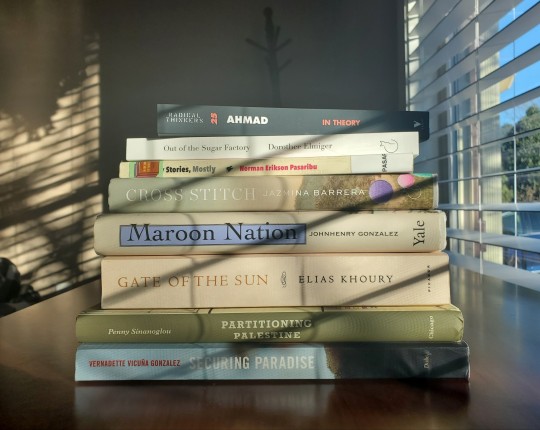

I put together a little reading list for break bc there's soooo much I want and need to read, its obviously too long and subject to the whims of my brain but some of it will be read;
cross stitch, jazmina barrera trans. christina mcsweeney
out of the sugar factory, dorothee elmiger trans. megan ewing
brotherless night, v.v. ganeshananthan
a mercy, toni morrison
happy stories, mostly, norman erikson pasaribu trans. tiffany tsao
gate of the sun, elias khoury
after the last sky: palestinian lives, edward said
discourse on colonialism, aimé césaire trans. joan pinkham
necropolitics, achille mbembe
securing paradise: tourism and militarism in hawai'i and the philippenes, vernadette vicuña gonzalez
the jakarta method: washington's anticommunist crusade and the mass murder program that shaped our world, vincent bevins
partitioning palestine: british policymaking at the end of empire, penny sinanoglou
maroon nation: a history of revolutionary haiti, johnhenry gonzalez
in theory: classes, nations, literatures, aijaz ahmad
jungle passports: fences, mobility, and citizenship at the northeast india-bangladesh border, malini sur
finally got the news: the printed legacy of the u.s. radical left, 1970–1979, ed. brad duncan
#if you have any fiction recs pls send them#this list is uncharacteristically nonfiction heavy but thats probably good too bc i always avoid nonfiction
15 notes
·
View notes
Text

Rating: 4/5
Book Blurb: Bookish suffragist Catriona Campbell is busy: An ailing estate, academic writer’s block, a tense time for England’s women’s rights campaign—the last thing she needs is to be stuck playing host to her father’s distractingly attractive young colleague.
Deeply introverted Catriona lives for her work at Oxford and her fight for women’s suffrage. She dreams of romance, too, but since all her attempts at love have ended badly, she now keeps her desires firmly locked inside her head—until she climbs out of a Scottish loch after a good swim and finds herself rather exposed to her new colleague.
Elias Khoury has wheedled his way into Professor Campbell’s circle under false pretenses: he did not come to Oxford to classify ancient artefacts, he is determined to take them back to his homeland in the Middle East. Winning Catriona’s favor could be the key to his success. Unfortunately, seducing the coolly intense lady scholar quickly becomes a mission in itself and his well-laid plans are in danger of derailing...
Forced into close proximity in Oxford’s hallowed halls, two very different people have to face the fact that they might just be a perfect match. Soon, a risky new game begins that asks Catriona one more time to put her heart and wildest dreams at stake.
Review:
Catriona Campbell is a bookish suffragist who had given up on romance after a bad go at it, yet she now finds herself playing host to her father's very charming and handsome young colleague who is on a mission of his own. Catriona spends most of her time working on her book and fighting for women's suffrage. She dreams of romance but has had a bad past with it that has lead her to keep her desires locked deep inside her. Yet one day while swimming in the loch... she exposes herself to her new colleague, Elias Khoury, the new guest that she will be playing host to for her father. Elias Khoury needs to get into Professor's Campbell's circle in order to steal back ancient artifacts for his homeland in the Middle East. He has to pretend to be in Oxford to classify artefacts but he actually needs Catriona's help... what started off as attempts to seduce her into helping him soon grows into it's own thing as he begins falling for the one woman that is unattainable... yet he can't keep away. Catriona and Elias are two people from different worlds, cultures, and more and yet the just might be perfect for each other... if only Elias could convince Catriona that he's the one for her. This was a fun read, it definitely leans really heavy into the history info but I enjoyed the romance between Elias and Catriona. I loved how attentive Elias was to Catriona's sensitivity and how much they both cared for each other. Their relationship was really fun to read and overall I had a good time.
*Thanks Netgalley and Berkley Publishing Group, Berkley for sending me an arc in exchange for an honest review*
4 notes
·
View notes
Text
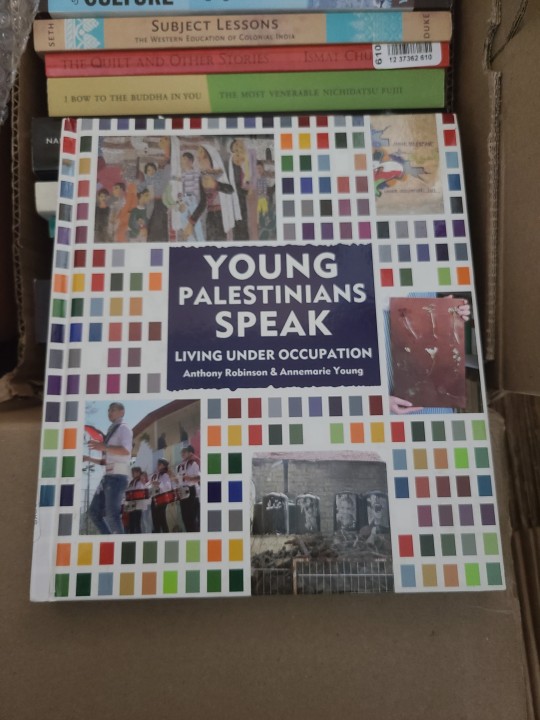
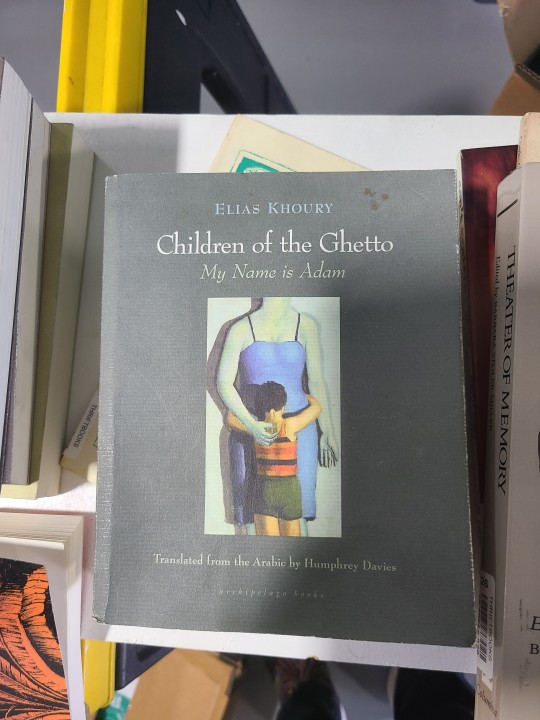
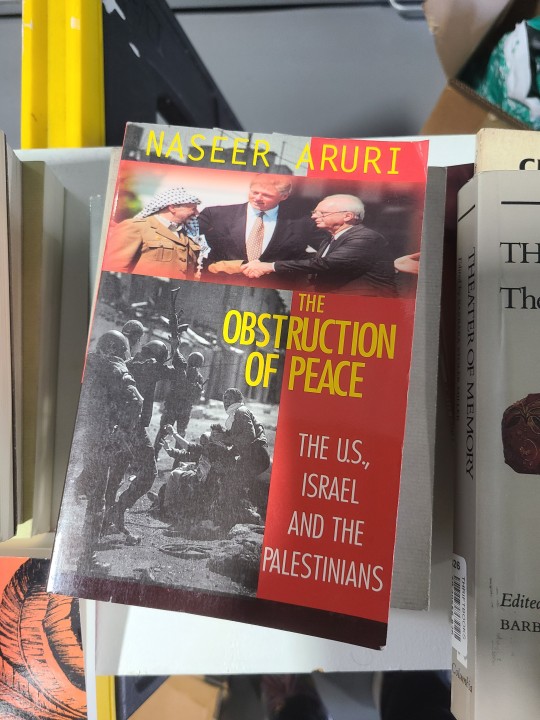
Packing books to go to Berlin. These catch my eye this week.
Young Palestinians Speak, a social studies book for 4th - 6th grades.
The Obstruction of Peace by Naseer Aruri, 1995
Children of the Ghetto: my name is Adam by Elias Khoury
6 notes
·
View notes
Text
today in preparation I finally. After years of hiding. Read everything I could about raqqah. And I looked at the pictures. Do you ever think about how many people the us has killed in syria in the name of democracy? Because the people wanted to fight "the lion." I'm going to do something dangerous with my book. I know I'm already on the list at the air port in t** av** when they strip searched me and took my phone. I'm so afraid to live authentically as a syrian. But what will my family's legacy be if I don't speak? My family supports the lion. But anyone in their right mind could not.
Today I went into meditation and beelzebub and Mahmoud darwish came to me and Mahmoud darwish said record that i am arab.
Mashallah right where is his papers? Even from the grave his voice can come to you and tell you that he's hungry for the flesh of the oppressor
Mahmoud darwish spoke it and wrote it and that's why my first tattoo ever was a Mahmoud darwish quote
Even if he came to me from the sadness of the man who witnessed his death, Elias khoury.
I'm learning the lesson. Stop being afraid to speak. Stop being afraid to listen
Well, at least accept it right. Accept it and make space for it
2 notes
·
View notes
Text

— The Gentleman’s Gambit, Evie Dunmore
#the gentleman’s gambit#evie dunmore#a league of extraordinary women#elias khoury#catriona campbell#bringing down the duke#a rogue of one’s own#portrait of a Scotsman#book quotes#quotes#quotes and words#beautiful words#words words words#words#romance quotes#love quotes#yearning#love#book edit#book quote#book quotations#quotation#book excerpt#litedit#literature#quotes on love
27 notes
·
View notes
Text
The Palestinians refrained from utilizing the term “Holocaust” to describe their own catastrophe; they used different terminology for this purpose. This is further indication, if further indication is necessary, of the essential difference between the two historical events, in both the circumstances surrounding them and in what they signify. Even though some Israeli practices may be reminiscent of those of the Nazis, it is a mistake to fall into the trap of making such comparisons, as it would only lead to obscuring issues that color the present. This is an error committed by many Israelis, Jews, Palestinians, and Arabs, and it is no less grave than the mistaken belief by some of the Palestinian leadership in the 1940s that the enemy of their enemy was their friend, which led them into the great folly of cooperation with the Nazis.
Refusing to fall into the trap of such a comparison is crucial not only because of the enormity of the pure evil created by the Nazi horror machine but also because of the inherent difference between the two events. The Holocaust, as a major episode in human history, highlights the ever-present possibility of sliding into racism; it ought to be a continuous reminder for the whole of the human race of the importance of standing vigil against the insidious encroachment of racism and of refuting its very assumptions. The Nakba, on the other hand, is an embodiment of the same colonial expansionist reality that gave birth to the apartheid regime in South Africa, causing people everywhere to unite in the struggle, led by the African National Congress, against the shameful regime, culminating in its eradication.
—Elias Khoury, from The Holocaust and the Nakba: A New Grammar of Trauma and History
3 notes
·
View notes
Text
Classical singers of North African or Turkish birth or descent: a list
This is a very short one, and nearly all of these artists are still with us — indeed, many of them are in the early years of their careers.
Israel is of course in North Africa, but isn’t represented on this list. That’s coming, though, believe me.
Ilker Arcayüerk, tenor, Turkey
Rachid Ben Abdeslam, counter-tenor, Morocco
Rihab Chaieb, mezzo-soprano, Tunis
Amina Edris, soprano, Egypt
Rosalind Elias (1930-2020), mezzo-soprano, USA
Juliette Khalil, soprano, Austria
Magid El-Bushra, counter-tenor, Sudan
Anna El-Khashem, sopran, Russia
Joyce El-Khoury, soprano, Lebanon
Leyla Gencer (1928-2008), soprano, Turkey
Andrew Haji, tenor, Canada
Sandra Hamaoui, soprano, France
Kartal Karagedik, baritone, Turkey
Murat Karahan, tenor, Turkey
Miriam Khalil, soprano, Canada
Eralp Kıyıcı, baritone, Turkey
Önay Köse, bass, Turkey
Ezgi Kutlu, mezzo-soprano, Turkey
Amadi Lagha, tenor, Tunis
Omar Najmi, tenor, USA
Julie Nesrallah, mezzo-soprano, Canada
Fatma Said, soprano, Egypt
Karim Sulayman, tenor, USA
Ashraf Sweailam, bass-baritone, Egypt
Öznur Tülüoglu, soprano, Turkey
Orhan Yildiz, baritone, Turkey
Linda Zoghby, soprano, USA
2 notes
·
View notes
Text
L’Arabe invisible
Stella Maris est le nom du monastère des carmélites, entouré de jardins et de terrasses, qui surplombe la ville de Haïfa. Tout près de là se trouve la grotte où vint se réfugier le prophète Élie. C’est là aussi que le personnage créé par Elias Khoury, Adam Dannoun, né dans le ghetto de Lod en 1948, l’année de la Nakba, vient s’asseoir pour défaire et refaire tous les fils de son existence et…

View On WordPress
0 notes
Text
Blog Tour & ARC Review: The Gentleman's Gambit by Evie Dunmore
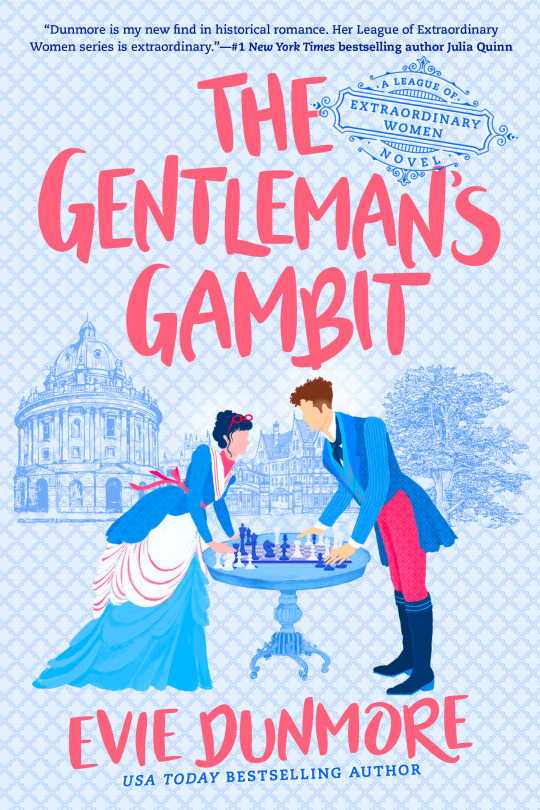
Order
Add to Goodreads
Publication Date: December 5, 2023
Welcome to The Gentleman's Gambit book tour with Berkley Publishing Group. (This blog tour post is also posted on my Wordpress book blog Whimsical Dragonette.)
Synopsis:
Bookish suffragist Catriona Campbell is busy: An ailing estate, academic writer’s block, and a tense time for England’s women’s rights campaign—the last thing she needs is to be stuck playing host to her father’s distractingly attractive young colleague.
Deeply introverted Catriona lives for her work at Oxford and her fight for women’s suffrage. She dreams of romance, too, but since all her attempts at love have ended badly, she now keeps her desires firmly locked inside her head—until she climbs out of a Scottish loch after a good swim and finds herself rather exposed to her new colleague.
Elias Khoury has wheedled his way into Professor Campbell’s circle under false pretenses: He did not come to Oxford to classify ancient artefacts; he is determined to take them back to his homeland in the Middle East. Winning Catriona’s favor could be the key to his success. Unfortunately, seducing the coolly intense lady scholar quickly becomes a mission in itself and his well-laid plans are in danger of derailing....
Forced into close proximity in Oxford’s hallowed halls, two very different people have to face the fact that they might just be a perfect match. Soon, a risky new game begins that asks Catriona one more time to put her heart and wildest dreams at stake.
Author Bio:
Evie Dunmore wrote her USA Today bestselling series inspired by the magical scenery of Oxford and her passion for romance, women pioneers, and all things Victorian. In her civilian life, she is a consultant with a M.Sc. in diplomacy from Oxford. Evie lives in Berlin and pours her fascination with nineteenth-century Britain into her writing. Learn more online at www.eviedunmore.com.
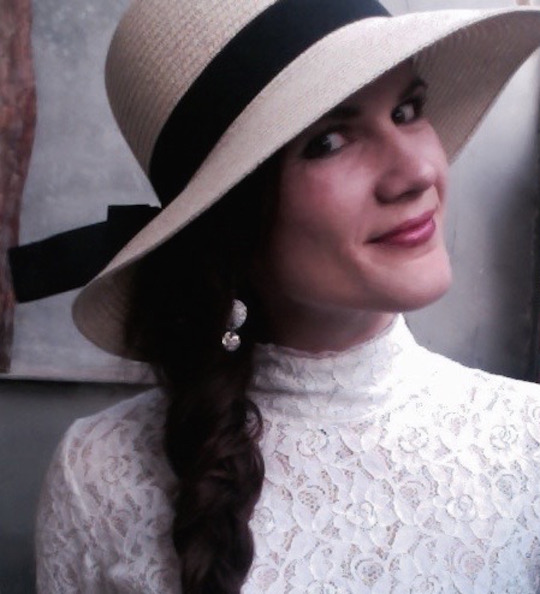
author photo credit: Evie Dunmore
Rating: ★★★★
*My Review, Favorite Quotes, and Non-Exclusive Extract below the cut.
My Review:
It took me a little while to get into this book. I wasn't sure at first about the representation of Elias's character, but I think it improved as the book went on. He and Catriona grew on me slowly until I realized I loved them, more than I have any of Evie Dunmore's previous characters. I identified a lot with Catriona and that pulled me further into the story as it went along.
There was a point in the middle where it almost lost me, where there is basically one excruciatingly long extended sex scene that goes on for multiple chapters. As far as sex scenes go, it was well-written, but I am ace and don't find such things particularly appealing or engaging. Luckily the last chunk of the book drops the sex in favor of emotional and intellectual connection, which is my personal preference in a romance.
Perhaps because I love intellectual and emotional connection, and especially slow-burn, I found the amount of history in this book perfect. Catriona is a very intellectual person and it makes sense that her book would be more history-focused. I appreciated the discussion of the ethics of collecting artefacts in the UK when the countries they originated in wanted them back. I thought it went very well with the underlying suffragist theme.
I also really, really appreciated that Catriona is LGBT. This is something that hasn't come up in Evie Dunmore's books before that I recall, and that combined with Catriona being obviously not neurotypical made me love her and identify with her even more. I also appreciated that this doesn't turn into a point of contention between them. Elias accepts it along with her neuroatypicalness as just another facet of her character.
The way Elias treats her quirks and sensory struggles is really heartwarming. He doesn't make fun of her. He doesn't try to get her to hide or mask them and pretend to be 'normal.' Instead, he accomodates her at every turn and offers suggestions of things that might help ease her way when she has to be surrounded by people. That is rare and shows his gentleness and care better than any of the sex can.
At first the chapters from previous characters' POVs were jarring, but I came to appreciate the glimpses into their lives. I didn't feel like they took away from Catriona's story at all. The epilogue, set when they are all grandmothers and get to see women finally gain the right to vote, was emotional and heartwarming and was a great way to round out a series where women's suffrage was so central to all of the characters and plots.
I loved this, and of all the books in this series, this is the one I will most likely revisit.
*Thanks to NetGalley and Berkley for providing an early copy of this book.
Favorite Quotes:
Lord Peregrin's chin rose. "I doubt it will improve your opinion of me, sir, but for what it's worth, I was forced into this appalling scheme by the lady herself."
What kind of man are you, Elias thought, to allow yourself to be forced into idiotic, improper acts that endanger a woman's name and safety? As he stared into Lord Peregrin's perspiring face, he felt supremely annoyed because he himself had been exactly that kind of man.
Non-Exclusive Excerpt
Applecross, Scotland, July 1882
The breeze stirred and sent shivers across the loch, and the cold entered her bones, urging her to return. She swam with practiced backstrokes, her mind inattentive as her body knew the route to the eastern bank by habit. No one ever visited the small crescent of shoreline where she had left her clothes. The spot was shielded by a rare patch of forest, and only sheep and old gamekeeper Collins knew the path, neither of whom posed a threat to the daughter of Alastair Campbell, Earl of Wester Ross. Gooseflesh rose on her wet skin when she emerged from the water. She strode to the forest edge quickly. Her clothes were still laid out on the boulder, secured in place by a thick volume of Virgil's Aeneid. With clammy fingers, she picked up the book and her spectacles. Then she noticed it: the presence to her right. She froze.
A man.
A man was blocking the entrance of the forest path.
Ice shot through her stomach.
She clutched the Virgil in front of her modesty; her spectacles clattered to the ground. He was five yards away. Watching her. Her heart was racing. He had already seen her . . . he had seen everything. She turned to him fully with the treacle-slow motion of a bad dream. His contours were fuzzy, but conclusive enough: still young, strong features, broad but lean shoulders in a fitted coat-he was in fine fighting form. Not good. And he was still staring. With an age-old expression of awe. As though he had unexpectedly stumbled through the doors of a cathedral and felt ambushed by the dizzying heights and the dusty taste of the eternal. It would have given her pause, except there was a pair of binoculars resting against his chest. A white-hot sensation rushed to her head.
"What do you think you are doing," she snapped, the words shooting out cold and clipped.
The man came alive as if he had been released from a spell. He turned his face away.
"You . . . are a woman," he said, sounding vaguely stunned.
"Astutely observed, sir," she said, incredulous.
He made a noise in his throat, like a surprised chuckle.
The pulse pounding in her ears near drowned out her conscious thinking. "Of course you're amused," she said. "One would expect nothing but low humor from a cowardly Peeping Tom."
He twitched, as though it cost him effort to not whip his head back round to her. "I was not . . . peeping."
"So you did not, while walking along the ridge, spot me in the water, use your binoculars to ascertain that I was indeed an unclothed woman, and then creep all the way down through the forest to spy on me?"
Her tone had sharpened with every word and by the end, he should have lain on the ground in neat slices. He stood quite intact if a bit befuddled. His head tipped back on a soft laugh.
"That sounds like a lot of trouble just to see an unclothed woman," he said. "You are very charming, miss," he added, "but it's nothing I have not seen before."
Her cheeks stung as if she had been slapped.
"Then why," she cried, "are you still standing there-oh!"
Her startled gasp did make him look back at her, just as a translucent shape flew toward him on a fresh gust of wind. Hell. Her untethered underclothes, fine like cobwebs, had taken off in the breeze.
"Blast." She lunged forward and slammed her palm down on a remaining stocking. She cast a quick glance sideways. The man was straightening from a crouch with her chemise caught in his fist, as if he had swiped it from midair like a large cat. He eyed her pantaloons next-they had landed in a shrub, and it had to be the pantaloons because there were blurry pink ribbons, doing a saucy dance.
"Don't touch that," she wheezed.
He raised his arms over his head. "I won't touch."
Her chemise fluttered in his hand like a white flag.
"You really ought to take your leave now," she suggested through gritted teeth.
"Absolutely," he agreed. "See here."
He turned around, seemed to survey the nearest tree, and then he deftly tied her chemise to the trunk by its decorative cords.
"Voilà," he said and spread his fingers. "You shall never see me again."
Without a backward glance, he strode into the forest at a fluid pace.
"Nearly gone now," he called out before his elegant form disappeared around the bend.
Excerpted from The Gentleman's Gambit by Evie Dunmore Copyright © 2023 by Evie Dunmore. Excerpted by permission of Berkley. All rights reserved. No part of this excerpt may be reproduced or reprinted without permission in writing from the publisher.
#berkeley#evie dunmore#historical romance#the gentleman's gambit#regency romance#romance#shilo reads#arc review#netgalley#blog tour#a league of extraordinary women
0 notes